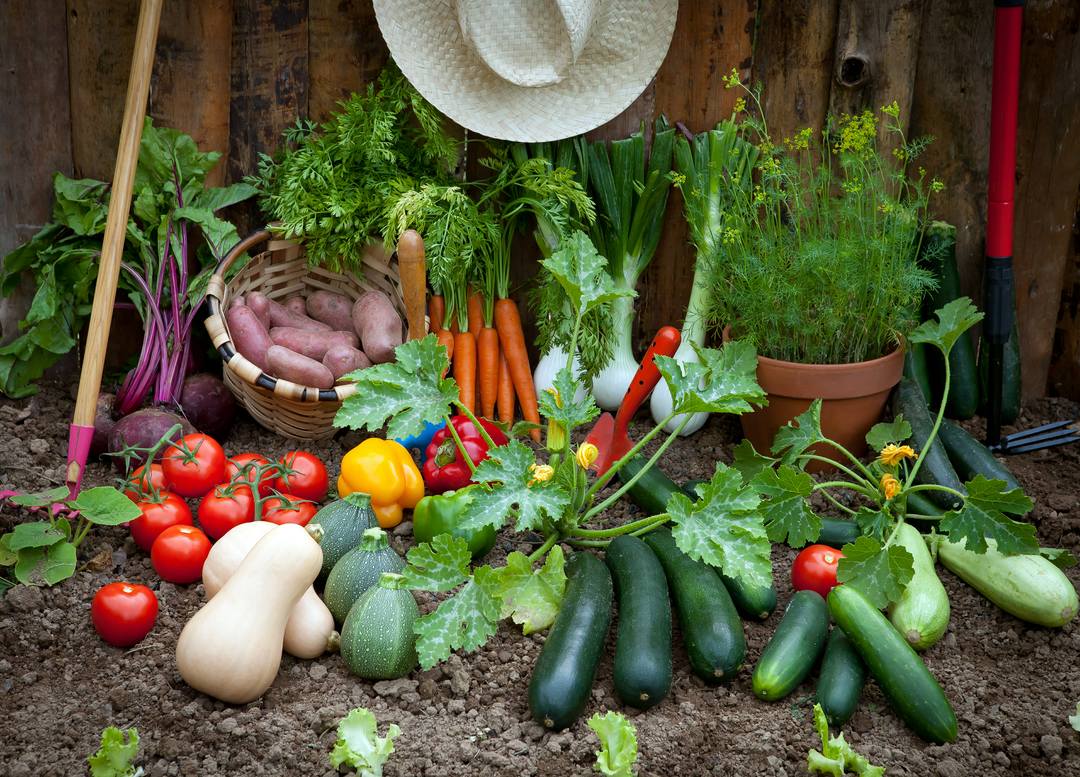How to Grow an Organic Vegetable Garden: Tips for Success
Imagine biting into a crisp, juicy tomato that you grew yourself, knowing it's free from pesticides and bursting with flavor. Growing an organic vegetable garden is not just about producing food; it's about nurturing a sustainable ecosystem in your backyard. Whether you're a seasoned gardener or a novice with a green thumb, this guide will provide you with essential tips for successful organic vegetable gardening. Let's dive in!
Understanding Organic Gardening Techniques
Organic gardening is all about working with nature, not against it. It's about creating a harmonious environment where plants thrive without the need for synthetic chemicals. Here are some fundamental organic gardening techniques to get you started.
Choosing the Right Location
The first step in creating a successful organic vegetable garden is selecting the right location. Your garden should receive at least 6-8 hours of sunlight daily. Avoid areas prone to flooding or excessive shade. A well-drained, sunny spot is ideal for most vegetables.
Preparing Organic Soil
The foundation of a healthy garden is rich, organic soil. Start by testing your soil's pH and nutrient levels. Most vegetables prefer a pH between 6.0 and 7.0. Amend your soil with compost, which is rich in organic matter and beneficial microorganisms. Compost not only improves soil structure but also enhances its ability to retain water and nutrients.
Selecting the Right Plants
Choose plants that are well-suited to your climate and soil conditions. Heirloom varieties and disease-resistant cultivars are excellent choices for organic gardens. Consider companion planting, where certain plants are grown together to benefit each other, such as marigolds to deter pests or beans to fix nitrogen in the soil.
Vegetable Growing Tips for Success
Growing vegetables organically requires a bit of planning and care. Here are some tips to ensure your garden flourishes.
Rotate Your Crops
Crop rotation is a key organic gardening technique. By rotating your crops, you prevent the depletion of soil nutrients and reduce the risk of pests and diseases. For example, follow a heavy feeder like tomatoes with a light feeder like lettuce.
Water Wisely
Proper watering is crucial for healthy plant growth. Water your plants deeply and less frequently to encourage deep root growth. Early morning watering is best to minimize evaporation and prevent fungal diseases.
Mulch for Moisture Retention
Mulching your garden with organic materials like straw, wood chips, or grass clippings helps retain moisture, suppress weeds, and regulate soil temperature. It also adds organic matter to the soil as it decomposes.
Pesticide-Free Gardening Techniques
One of the main goals of organic gardening is to avoid the use of synthetic pesticides. Here are some natural methods to keep pests at bay.
Attract Beneficial Insects
Encourage beneficial insects like ladybugs, lacewings, and predatory wasps to inhabit your garden. These natural predators feed on pests like aphids and mites. Plant flowers like dill, yarrow, and calendula to attract these helpful bugs.
Use Natural Pesticides
If pests become a problem, consider using natural pesticides. Neem oil, insecticidal soap, and diatomaceous earth are effective and safe alternatives to chemical pesticides. Always follow the instructions on the label for proper application.
Practice Integrated Pest Management (IPM)
IPM is a holistic approach to pest control that combines various methods to manage pests effectively. It involves monitoring pest populations, using physical barriers, and employing biological controls.
Creating a Home Vegetable Garden
Starting a home vegetable garden can be a rewarding experience. Here are some steps to help you get started.
Plan Your Garden Layout
Before you start planting, plan your garden layout. Consider the size of your garden, the types of vegetables you want to grow, and their space requirements. Raised beds are a great option for small spaces and can help with soil drainage and pest control.
Start with Easy-to-Grow Vegetables
If you're new to gardening, start with easy-to-grow vegetables like lettuce, radishes, and beans. These crops are relatively low-maintenance and provide quick results, boosting your confidence as a gardener.
Keep a Garden Journal
Maintain a garden journal to track your progress, note successes and failures, and record valuable lessons learned. This will help you improve your gardening skills over time.
Conclusion
Growing an organic vegetable garden is a journey filled with learning, satisfaction, and delicious rewards. By following these tips for successful organic vegetable gardening, you can create a thriving, pesticide-free garden that nourishes both your body and the environment. Embrace the process, enjoy the fresh produce, and watch your garden flourish.
FAQs
What are the benefits of organic gardening? Organic gardening promotes soil health, reduces environmental pollution, and produces healthier, more nutritious food. It also supports biodiversity and creates a sustainable ecosystem.
How do I prepare my soil for an organic garden? Start by testing your soil's pH and nutrient levels. Amend the soil with compost to improve its structure and nutrient content. Avoid using synthetic fertilizers and opt for organic amendments instead.
What are some common pests in organic gardens? Common pests in organic gardens include aphids, whiteflies, slugs, and caterpillars. Natural pesticides and beneficial insects can help control these pests without resorting to chemical treatments.
How can I improve soil drainage in my garden? Improve soil drainage by adding organic matter like compost or well-rotted manure. Raised beds can also help with drainage, especially in areas with heavy clay soil.
What are some easy-to-grow vegetables for beginners? Easy-to-grow vegetables for beginners include lettuce, radishes, beans, and cucumbers. These crops are relatively low-maintenance and provide quick results, making them ideal for new gardeners.


Happy gardening!
0 Response to "How to Grow an Organic Vegetable Garden: Tips for Success"
Post a Comment